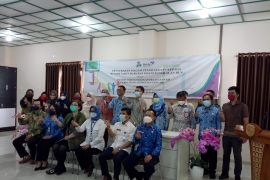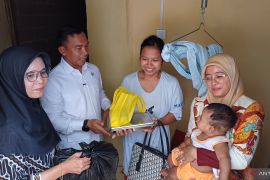"Disseminating (information on) planned pregnancy by using contraception is very important to reduce the maternal and infant mortality rate and improve infants' life quality to prevent stunting," Head of BKKBN Hasto Wardoyo stated here, Monday.
Data in the Family Data Collection (PK21) noted that the national total birth rate declined to 2.24 after the figure was recorded at 2.6 in 2017.
"While it has declined to 2.24 children per woman of reproductive age, this figure has not yet reached the targeted figure set by the government of 2.1 by 2024," he remarked.
This is despite the fact that contraception is useful to control population explosion and prevents reproduction-related diseases, such as cervical cancer, in women, he noted.
Contraception also reduces the maternal and infant mortality rate by providing a gap between pregnancy and birth, he stated.
In the agency's data, the trend in contraception usage shows an improvement. It is recorded that 32 percent preferred injection for family planning; 14 percent use pill; four percent, IUDs; and three percent, implants.
As a form of commitment to reduce the maternal and infant mortality rate, the BKKBN has provided IUD, implant, pill, condom, and injection free of charge at health facilities integrated with the agency.
Wardoyo acknowledged that pill and injection usage currently cannot yet ensure safety in preventing pregnancy. However, contraception usage is focused on raising the people's awareness to understand the importance of spacing between pregnancies.
To commemorate the 2022 World Contraception Day, the agency also readies free pap smear tests as a form of screening to identify potential cases of cervical cancer coupled with the dissemination of information on reproductive health in Yogyakarta.
The event targets women, aged 21-65 years, who are sexually active. Early detection is expected to prevent women from receiving diagnosis too late or to identify disease as early as possible.
Wardoyo emphasized that the government should continue to disseminate information on the dangers of unplanned pregnancy with too short spacing. Short birth intervals raise the risk of stunting, Wardoyo pointed out.
Related news: Myths, misunderstandings affect contraception usage: BKKBN Head
Related news: Contraception dissemination needs to be continued: BKKBN Head
Related news: World Contraception Day offers momentum to bolster family planning: BRIN
Translator: Hreeloita D S, Fadhli Ruhman
Editor: Sri Haryati
Copyright © ANTARA 2022












